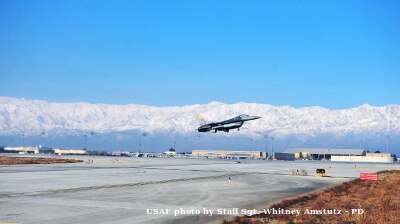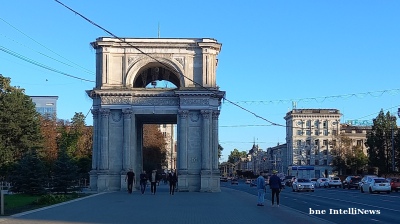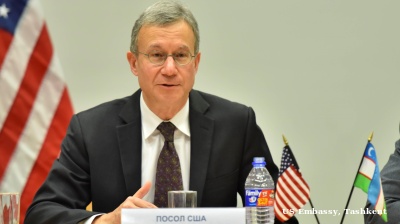An overly restrictive reproductive health framework in Turkmenistan is contributing to societal dysfunction, rights advocates contend.
Turkmenistan’s population growth rate has been stagnating in recent years, falling to its lowest level (1.84%) in 2023 since the hardship years following the Soviet Union’s breakup in the 1990s. A decade ago, the growth rate stood at 2.29%. The country’s authoritarian-minded leadership is resorting to draconian policies to force women to have more babies out of an apparent desire to bolster population growth.
Access to reproductive health information is limited in the country, and only an estimated 47% of women are using contraceptives. Since the adoption of amendments in 2015, abortion is legal in Turkmenistan only up to the fifth week of pregnancy—a timeframe before many women even know they are pregnant. The five-week limit is the lowest in the world.
Legal statutes also permit abortions for “social” reasons until the 22nd week of pregnancy, and for “medical” reasons after the 22nd week. But the statutes are vague in defining criteria for social and medical abortions, and the law also specifies the final decision is up to state medical commissions that are institutionally reluctant to approve procedures.
“Abortions are a deeply personal and culturally taboo topic. Restricted access to them deepens social and economic gender inequality,” said Aynabat Yaylymova, founder of the Progres Foundation, a US-based nonprofit advocating for public health literacy and human rights in Turkmenistan.
“If women had the freedom to control their bodies and make decisions about childbirth, they’d manage contraception better. But they don’t,” added Yaylymova, answering questions posed by Eurasianet. “They lack freedom, education, and financial independence. No one listens to them. They have no information, no chance to understand, choose, or plan their lives.”
In practice, legal abortions are very difficult to obtain. Only 76 gynaecologists are certified to perform abortions in the country with an estimated population of over 7.4mn. And RFE/RL reported in 2024 that officials issued informal instructions to medical clinics banning abortions. Doctors who perform an abortion outside of the state framework are subject to criminal prosecution.
“Turkmenistan’s restrictive abortion laws also increase vulnerability” to instances of domestic abuse, stated a report compiled in early 2024 by a coalition of non-governmental organisations, published under the auspices of the UN Convention for the Elimination of Discrimination against Women (CEDAW). “Unwanted pregnancy and denial of abortion may subject victims of sexual violence to not only physical and mental suffering but also further stigmatization and isolation.”
Amnesty International in its 2024 overview of Turkmenistan cited a survey showing that that one in eight women in Turkmenistan were subjected to physical and/or sexual violence by an intimate partner. A study published by the UN Population Fund, meanwhile, stated that “approximately 1 out of every 3 women who experience physical and sexual abuse or violence from their partner resort to abortion.”
Abortions are still being performed in Turkmenistan, and in significant numbers. The NGO report for CEDAW, for example, noted that 83% of unintended pregnancies, or almost 29,000, ended in an abortion between 2015-2019.
A Turkmen medical professional told the Progres Foundation that ‘they’ presently perform 20-25 unofficial abortions monthly. “Statistics are skewed to meet government demands, with distorted figures and reasons,” the medical professional said, adding that many patients are uneducated housewives who already have multiple children.
“There’s no data, but it seems these women seek abortions most. The main reason is unplanned pregnancy. Women don’t know about contraception or can’t access it. Men don’t use condoms,” the medical professional said. “The burden of preventing pregnancy falls on women.”
According to RFE/RL, illegal abortions can cost up to $14,000. Given the cost, many women, especially in rural areas, resort to dangerous options.
“We have no official reports of deaths from unsafe abortions or underground cases. Women with money can pay for abortions themselves or through partners. Poor, uneducated, or large families suffer most,” Yaylymova said.
The economic toll is substantial. The restrictive abortion regime, combined with limited access to education and job opportunities, leave most Turkmen women on the economic margins of society.
“Women and girls born in the last 33 years will fare worse than their Soviet-era mothers and grandmothers. The reality is grim: women and children are the most vulnerable,” Yaylymova says.
Aigerim Turgunbaeva is a freelance journalist covering Central Asian affairs.
This article first appeared on Eurasianet here.
Features

Trump eyes Bagram return, with China in his sights
In the years it was operational, 14 nations operated at, or through Bagram. In addition to the US, these included UK forces and elements from France, Germany, South Korea and more.

$23bn windfall for Kazakhstan as Beijing shifts up a gear on New Silk Road
Resource-rich Central Asian country emerges as a standout destination for Chinese investment.

US cancels Chabahar port sanctions exemption in blow to India's regional strategy
US terminates Iran Chabahar port sanctions waiver from September 29, jeopardising India's strategic trade operations and regional connectivity initiatives through the key facility.

INTERVIEW: Moldova seizes its moment
From rapid progress towards EU accession to the reconstruction of neighbouring Ukraine, factors have aligned to make Moldova an attractive FDI destination, says Invest Moldova head Natalia Bejan.




